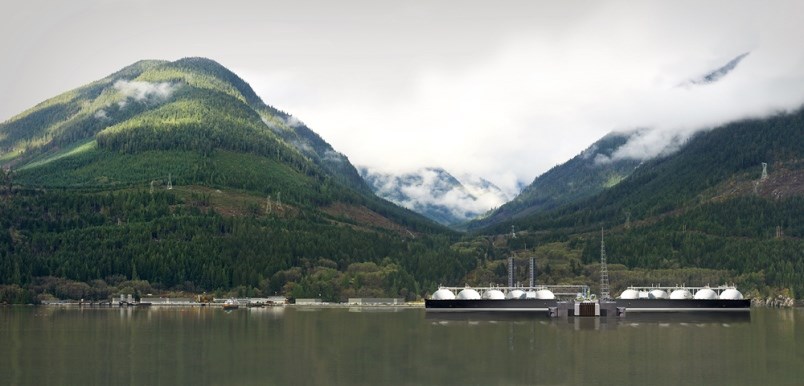For those of us who have an eye on world events, whether on a global or local level, it’s no hyperbole to say our institutions are falling apart little by little. Health care. Education. Elder care. Corporate bullies standing behind it all.
We watch the planet heat up on a daily basis, with some politicians doing nothing to curtail our addiction to the fossil fuel industries, even enabling them with billion-dollar subsidies.
Meanwhile, our newspapers and journalists often fail to expose this chipping away at the pillars of our democracy. A recent example was The Squamish Chief’s editorial staff’s article, “The Woodfibre LNG ‘baby.”
As an academic, a red flag flashes whenever I read an anonymous article— especially as the editorial. The first rule of assessing “research” is knowing who wrote it, especially when the article is woefully misinformed. Flags multiply when that very newspaper receives tens of thousands of dollars in advertising from the industry in question. There must be a higher bar for journalistic ethics.
The editorial ignores the fact that local, provincial and federal government jurisdictions should never be minimized or disregarded. It may seem like a quaint thought these days, but our politicians are actually elected to represent our community. We endow them with the collective power we individually lack.
Case in point: some of the issues being raised by citizens about Woodfibre LNG have not been addressed through the local, provincial or federal processes. The provincial public engagement process for the floatel happened just before Christmas, 2019. The scope and capacity of the floating workcamp has since increased, and many of the details are only now available for public review and oversight. With a better understanding of what is being proposed, there are legitimate concerns that require addressing. Council is doing the right thing by listening to the community and taking steps to ask those questions.
From the start, WFLNG’s ongoing modus operandi has been to continually spawn bigger problems for everyone out of a terrible idea. To take one example, the floatel is a cheap, temporary solution to a quandary WFLNG created for itself. As far back as 2014, it was told by the community there was no local accommodation available. Slithering through the cracks of other regulatory processes, it has only created larger liabilities for ordinary citizens in Squamish and the Sea to Sky communities.
There’s more. Notable are human rights impacts for the most vulnerable people living in our community. The safety of WFLNG’s own workers.
The legitimate concern of a toxic drug supply: while the floatel is meant to isolate the workers, it’s not isolated from the community. Neither last nor least, the cumulative impact of two workcamps for 1,300 workers needs to be seriously scrutinized.
With the many outstanding and emerging regulatory issues still outstanding, telling everyone to just forget about how we got here, and how we’ll move on, isn’t the advice we should be hearing from our newspaper editors.
Elijah Dann
Squamish
Editor’s note: Historically, editorials have always been unsigned and taken to be the opinion of the newspaper.




